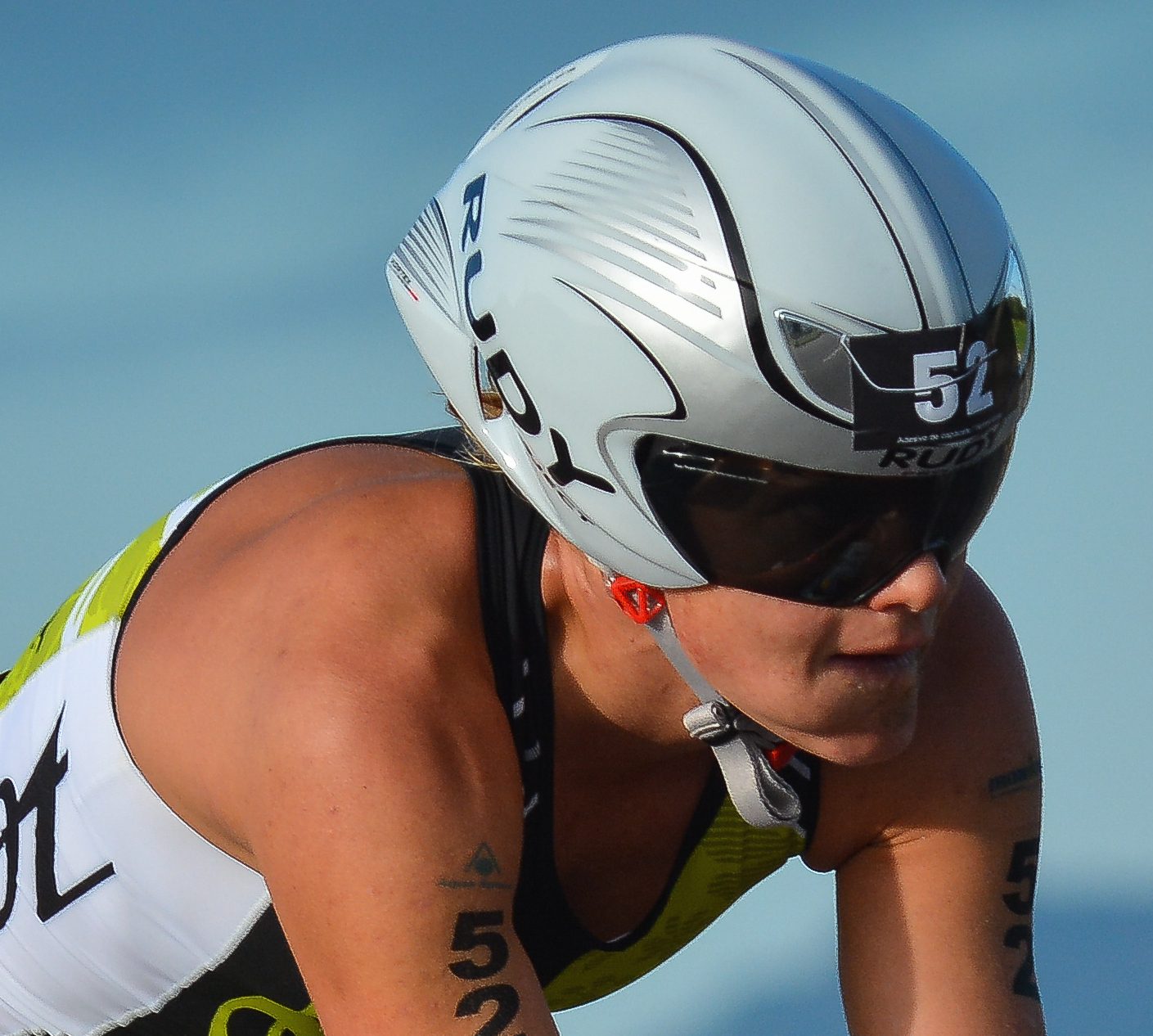Interview with Ironman North American Champ Sara Gross

Victoria-based Sara Gross won Ironman Mont-Tremblant this past Sunday making her the 2014 Ironman North American Champion. It was Gross’s second Ironman win this season, having claimed victory at Ironman Brazil in May. The pro triathlete has the brains to back her fierce athleticism and has a PhD in women’s history. She is also a mom and coaches a number of athletes. We had a chance to catch up to her after Sunday’s win.
Photo Gallery: See how @saragross' day unfolded at #IMMT – thanks to @cervelo https://t.co/iDPNqRXOsO pic.twitter.com/88yuffOVVa
— witsup.com (@witsupcom) August 20, 2014
TMC: How does if feel to be the Ironman North American champion?
Sara Gross: It hasn’t totally sunk in yet but so far, amazing, unreal, gratifying.
TMC: What did you think of the course and the crowds?
SG: The course is simply amazing. It has everything I look for in an Ironman course. Its pretty, hilly but not crazy-hard with fast, non-technical descents where you can truly fly. The run has some hills and some flats and good out-and-back sections where you can judge your competition. The spectators and support out there is as good as racing in Europe. I highly recommend this race.
TMC: Did you do any kind of Tremblant-specific training coming into the race?
SG: I did! I really wanted to be ready to take on the hilly course, so I did a strength-focus on the bike after IM Brazil. It was exactly what I needed for both the course and my confidence.
TMC: You are going to Kona in October having secured your spot in Tremblant, how will you balance recovery and training for Hawaii?
SG: After every Ironman, I take two weeks off from any official training program. I do some social swimming, biking and running, but nothing hard or long. Over the next couple weeks my coaches and I will set some objectives for the next training block and then I will get to work!
TMC: You had a mechanical on the bike that cost you a chunk of time. How did you stay calm and keep your head in the game?
SG: It’s hard to say how much time it cost me, but yes, I had an embarrassing mechanical issue on the bike. The day before the race the team at Cervelo had my bike working perfectly. I took it out for a spin and everything was smooth. Because it was raining buckets the day before the race, I brought my bike in the morning of the race. I must have bumped the rear brake in the car and didn’t check it again before the start. Big mistake. For the first part of the ride, I thought it was m, y legs that weren’t co-operating, but when I hit the quieter section near the end with the hills, I could hear the brake rubbing. I did what I could myself and then the race mechanic found me a little after the 100km-mark. Thankfully, the P5 has a great design for dealing with the brakes on the fly. He had me rolling in no time. The last 80km of the course I felt like I was flying. Keeping my head in the game was really the only option in my opinion. There’s always time to sulk after the race if required. This time however, there was no need .
TMC: At what point on the run did you know you could win and when did you make your move?
SG: When I got off the bike and was “only” 7mins down, I started to feel it was at least possible. I knew I was willing to take some risks in order to win but Amber was fighting hard in the front especially considering she raced an Ironman only 3 weeks earlier. I ran on the upper edge of what I thought I might be capable of. I could tell from the splits that I was gaining and I finally overtook her at about the 30k mark. The last few kilometers were pretty ugly to be honest. I suffered for my early pace on the run, so I didn’t really consider it to be in the bag until about 41km. Then the gap was too big for her to make a comeback and the energy of the crowds were carrying me in!
TMC: How have you balanced being a mom with being a pro athlete?
SG: With lots and lots and lots of help!! Every professional athlete needs to have a team, coaches, physios, massage, sponsors etc… As a mom, my team also includes people who love and care for my daughter when I cant be there; my husband, his parents, my parents, my friend Shelley, our daycare people and babysitters. My daughter has definitely learned to be adaptable.
TMC: In what ways does your academic background (PhD in Ancient History and Religion) find its way into sport?
SG: Interesting question. If you had asked me this a year ago I would have said it doesn’t. My PhD is really in women’s history. At the time, I wanted to contribute to the ongoing need to write women back into the pages of history where they belong! There has been a recent movement amongst the pro women to take care of the inequalities and inequitable rules we have in our sport such as having equal numbers of men and women in Kona and taking measures to make sure we have a fair race. I definitely feel equipped to stand up and make my voice heard on these issues!
